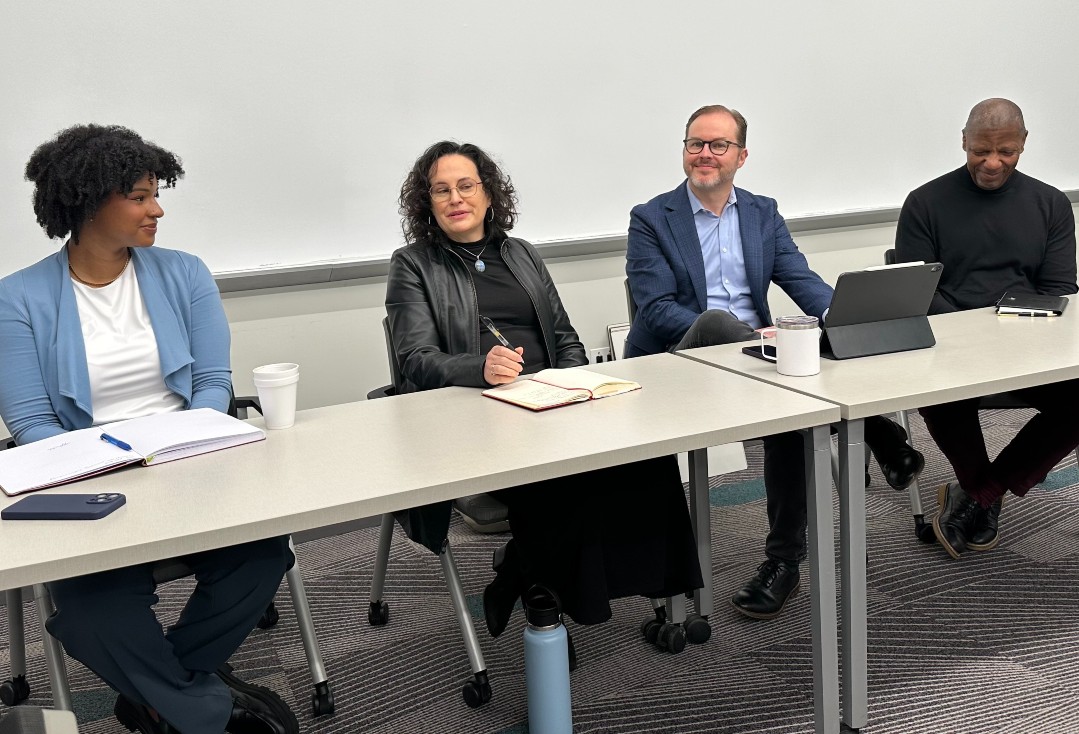Engage with Us
We want you to learn more about what we do and why we do it. We invite you to sign up to receive updates to learn how you be part of our work.

NashvillePeer co-hosted a panel discussion with the Peabody Research Office on how researchers can engage in authentic partnership work while also maintaining a scholarly research agenda. Peabody faculty on the panel included Sean Corcoran (Leadership, Policy, and Organizations), Kayla Fike (Human & Organizational Development), Lani Horn (Teaching & Learning), and Maury Nation (Human & Organizational Development).
The panelists shared their insights into the ways in which the demands of scholarly productivity and the needs of partnership research can conflict with one another, while also underscoring the rich scholarly opportunities that engaging in partnership research affords. Several key themes emerged.
Building lasting, trusting relationships matters most. Partnerships flourish when there is mutual trust and both the research and practice sides see the benefit in the long run. This may mean that early in the partnership, when relationships are still forming, scholars develop field-facing conceptual pieces that “count” for publication and can also contribute to partners’ conceptualization and framing of the problem of interest.
As Maury Nation noted, “engaging in partnership work is a lifestyle.” The panelists were aligned to the goal of “being in service” to their practice partners. They each saw partnership work as a fundamental to making people’s lives better, and sought out institutions that would value and support that commitment.
Creative thinking and strategic planning is a must. The panelists advised junior faculty to engage in multiple research projects at once, including ones that are publishable but separate from partnership work. Kayla Fike noted that in parallel to her RPP work, she is developing analyses of publicly available data sets. Similarly, Sean Corcoran reflected on his experiences of taking on smaller projects that did not have a significant return on investment for tenure, but that did go a long way for building relationships needed to propose more ambitious studies down the road.
Writing about the partnership process is a useful strategy. Panelists suggested that faculty could write about what’s going on in the partnership and connect that back to the theory and scholarly literature on partnering. Lani Horn noted that her training in anthropological approaches has served her well documenting and theorizing about partnership development.
We want you to learn more about what we do and why we do it. We invite you to sign up to receive updates to learn how you be part of our work.